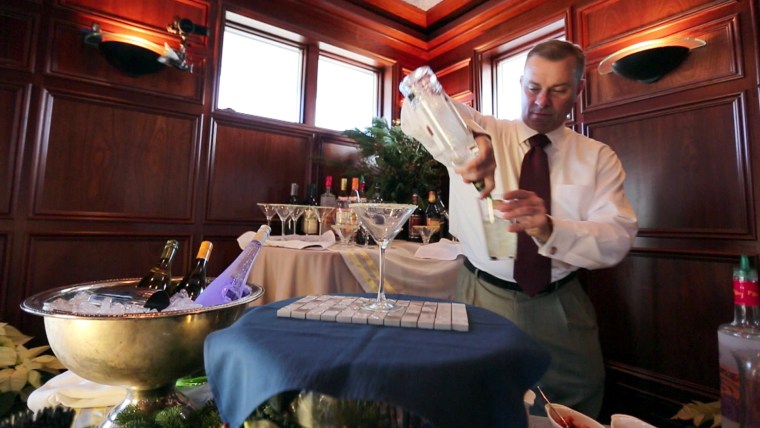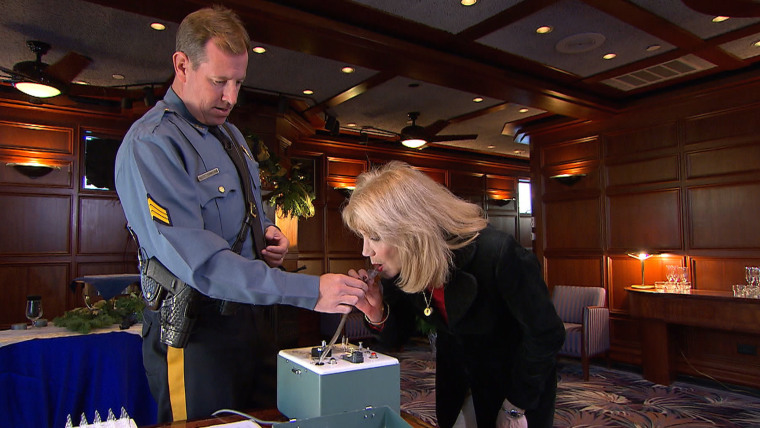It's party season, and a lot of us think we know our limits: "I can have a couple of drinks. If I'm not slurring my words or stumbling, I'm OK."
But, authorities say, too often people don't know their own limits. According to government data, during Christmas and New Year's, 40 percent of all traffic deaths involve alcohol. In just the few days surrounding those two holidays, an average of 304 people die in drunk-driving crashes, says the U.S. Department of Transportation.
"I think the misperception is that people feel they can go out and have a few drinks, when in reality, one drink can impair you," said Michael Halfacre, director of New Jersey Division of Alcohol Beverage Control.
Need a scam, rip-off or issue investigated? Email Rossen Reports.
Each year, more than 10,000 people die on the road due to drunk driving, the equivalent of 20 jumbo jet crashes. In December, an average of 27 people a day die in drunk-driving crashes, according to the National Highway Traffic Safety Administration. Nearly two out of three fatal crashes that occurred between midnight and 3 a.m. involved drunk drivers.

To demonstrate the dangers, TODAY conducted a social experiment, inviting a group of friends to a restaurant and telling them it was for a story about holiday drinking. What they didn't know was that after the party, a local police officer working with TODAY would be giving them Breathalyzer and field sobriety tests.
Half the guests were told to drink as they normally would, and the other half were told not to drink at all, so they could serve as designated drivers. (Car services were also hired as a backup to make sure everyone got home safely.)
One partygoer who drank, Kim, thought she would be OK if she waited "at least an hour, hour and a half" before she drove. But when she was given an Breathalyzer test after that time, she was surprised to find that after only two drinks, she had a blood alcohol level of 0.1 percent (the legal limit is 0.08 percent).
"I thought I could have two and be safe," Kim said. Authorities say that's a common mistake. Even after you stop drinking, your blood alcohol level can continue to rise as the liquor seeps into your system.
Another partygoer, Ron, thought he could safely drive two blocks home. But given a field sobriety test, he was unable to do it. His blood alcohol level was 0.13.
"I probably would have gotten into a car to drive home had I been at a local bar," Ron admitted. "God forbid I'd hurt someone or killed somebody."

Authorities say the message is: Even when you have just one drink, you can be physically impaired, and so is your judgment. If you're driving, don't drink at all.
Not to mention, you can easily get caught. As the holidays approach, police are stepping up DUI patrols and setting up checkpoints.
Mothers Against Drunk Driving urged people to designate a non-drinking driver when going to holiday parties, citing statistics on the typical spike of drunk driving deaths between Thanksgiving and New Year's Eve.
According to a recent MADD survey, 73 percent of adults say they have been to an event where they have seen someone try to drive home after drinking too much. While many of those surveyed said they either drove the person home themselves or took away the person’s keys, 19 percent said they did nothing.
Have an idea for a future edition of Rossen Reports? Email us.